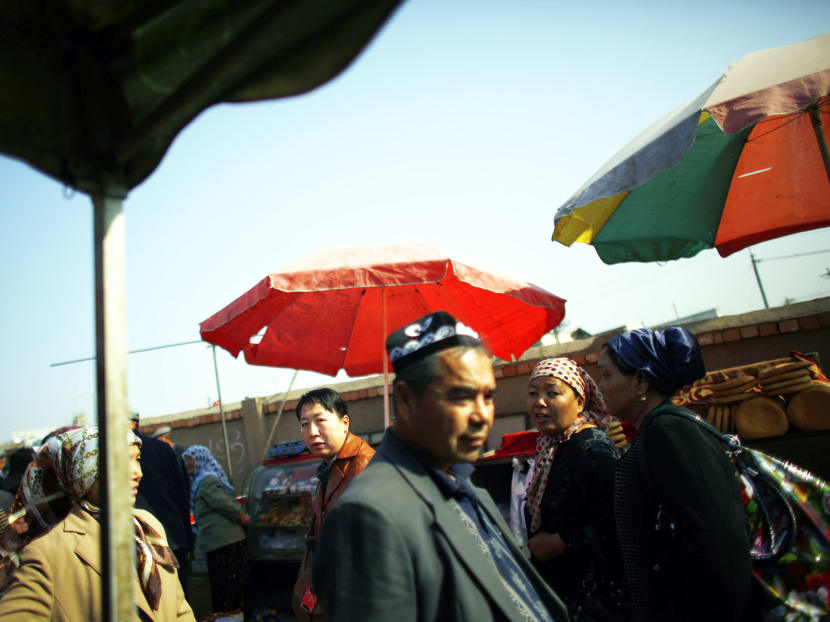China now says 50 were killed in Xinjiang blasts
BEIJING — Chinese state media have said that 50 people, including 40 assailants, were killed in a series of explosions over the weekend in the far-western region of Xinjiang, a much higher figure than was earlier reported, in what officials called a severe terror attack.

Uighur people at a market in Turpan, Xinjiang. A Singapore-based terrorism expert says China’s focus on development has failed to address long-standing ethnic grievances. PHOTO: REUTERS
BEIJING — Chinese state media have said that 50 people, including 40 assailants, were killed in a series of explosions over the weekend in the far-western region of Xinjiang, a much higher figure than was earlier reported, in what officials called a severe terror attack.
On Monday, the Xinjiang government’s Tianshan website had said two people had been killed on Sunday in the southern county of Luntai and referred to the incidents as “explosions”.
But Tianshan reported on Thursday that bombs exploded at two police stations, a produce market and a store. It said the attack killed two police officers, two police assistants and six bystanders and that 54 others were injured. It said police took swift action and 40 assailants were either shot dead or died in the explosions.
Police captured two attackers and an investigation found that a man who was fatally shot was responsible for the attack, the news portal said. Tianshan referred to the man as Maimaiti Tuerxun while the official Xinhua News Agency reported his name as Mamat Tursun. Names for people from the Uighur and other ethnic groups in China are sometimes transcribed differently in English.
A report by Radio Free Asia, a station funded by the United States government, on Thursday had cited local witnesses saying more than a dozen people were killed and around 100 were wounded in the violence, which took place in three towns in Luntai.
The witnesses told Radio Free Asia that crowds of ethnic Uighurs in the town of Yengisar, who were angry over forced mass evictions to make way for Han Chinese immigrants, had raided government offices and a police station. The report said the town’s police station was later bombed by the Uighur attackers.
A man who answered the phone at the Luntai county morgue on Thursday confirmed the higher death toll.
“On Monday, there were over 30 family members coming to collect the corpses,” said the man, who refused to give his name and did not specify the number of bodies.
The Chinese government blames foreign-backed terrorists, religious extremists and ethnic separatists for a wave of violence in Xinjiang that has killed more than 200 people in the past year. Uighur activists and international human rights groups say that intrusive Chinese restrictions on their religion, language and culture, have radicalised the Uighur population.
On Tuesday, a court in the regional capital sentenced a Uighur academic, Ilham Tohti, to life in prison after being convicted of separatism, drawing international condemnation.
Prosecutors said he had discussed Uighur frustrations in his classroom, ran a website devoted to Uighur issues and given interviews to foreign journalists. Court documents said he had “exploited foreign forces to create pressure to make Xinjiang an international matter”.
Mr Rohan Gunaratna, head of the International Centre for Political Violence and Terrorism Research at Nanyang Technological University in Singapore, disputed the Chinese government’s claims that all violence in Xinjiang is the work of terrorists.
“Most of the incidents, including attacks, are spontaneous,” he said.
Mr Gunaratna added that China’s focus on economic development in Xinjiang had failed to address long-standing ethnic grievances.
“Beijing has invested in building infrastructure, but not in creating reconciliation,” he said. Agencies





